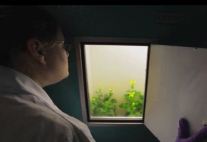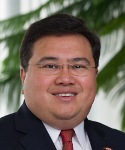
Sustainability Driving Dow Chemical's Transformation
The business case for it is stronger than ever, said Dow's vice president of sustainability and EH&S, Neil C. Hawkins.
- By Jerry Laws
- Dec 31, 2012
Sustainability isn't a fad for Dow Chemical Company. Sustainability is the centerpiece of its product development and partnerships around the world, as well as being crucial to hiring bright new employees and the wellspring for a transformation based on tackling major global challenges, such as climate change, energy conservation, water and food shortages, and increasing protections for human health and the environment.
As Dow's employees strive to accomplish the company's ambitious 2015 Sustainability Goals to address those and other challenges, including product safety leadership, Dow's vice president of sustainability and EH&S, Neil C. Hawkins, Sc.D., says transparency and third-party evaluation are critical elements of the Midland, Mich.-based company's efforts.
 "[The 2015 goals] were designed to challenge us. We're seven years into it and have three years remaining, the home stretch, and we're going to, one, make our best effort to make the goals, but I would say more importantly, to transform Dow Chemical further to be that kind of solutions provider that is a welcome participant in helping solve challenges, a welcome member of the community," he said during a Dec. 17 interview. Dow is very focused on collaborations to accomplish this, added Hawkins, who received the individual 2012 C.K. Prahalad Award for sustainability leadership from The Corporate Eco Forum.
"[The 2015 goals] were designed to challenge us. We're seven years into it and have three years remaining, the home stretch, and we're going to, one, make our best effort to make the goals, but I would say more importantly, to transform Dow Chemical further to be that kind of solutions provider that is a welcome participant in helping solve challenges, a welcome member of the community," he said during a Dec. 17 interview. Dow is very focused on collaborations to accomplish this, added Hawkins, who received the individual 2012 C.K. Prahalad Award for sustainability leadership from The Corporate Eco Forum.
"That was a very nice surprise," said Hawkins, who began working at Dow Chemical 25 years ago. He explained that C.K. Prahalad was a University of Michigan professor who pioneered the idea of companies helping to solve challenges for people at the bottom of the pyramid through free enterprise -– not through philanthropy or foreign aid. He and a colleague pushed the idea that sustainability challenges of the poorest countries could become business opportunities for the world's largest companies.
"Given our focus of using our science to help improve the value chain, quality of life, and planetary sustainability, I couldn't have thought of a better recognition of Dow's program than to have the C.K. Prahalad Award presented to me as a representative of that," said Hawkins.
The award also recognized Dow's collaborative efforts, such as the Sustainability Innovation Student Challenge Award program. Dow recently concluded the fourth annual program by announcing graduate students from 17 universities received prizes of as much as $10,000 for projects that address world challenges, which align with Dow's 2015 goals. "Those kinds of collaborations are like gold. It really helps the universities, but it also helps Dow understand what's going on on the university campuses in terms of sustainability and really keeps us current on the concerns of all the future excellent students we want to recruit. It's really win-win," Hawkins said. "It's a unique collaboration.
"The sustainability challenges of the planet are far too big for any government, any NGO, or any company to solve on his or her own. This is really something that has to be done across the board in a highly coordinated way, and I think now we're contributing well," Hawkins added. "We believe we need to provide sector leadership as well as value chain leadership,” he continued. “We believe we have a lot of responsibility because we're in the chemistry business, and chemistry is the science that underpins all of the solutions that our customers and their customers are looking for. We're very proud of our efforts in safety, as well. In the last couple of years, we;ve won both the Campbell Award [and] the Green Cross for Safety. We really have integrated safety and sustainability; we're really approaching this whole area in a holistic way."
No Slowdown in Momentum
The hesitant U.S. economic recovery and global economic difficulties have not caused companies' commitment to sustainability to wane, Hawkins said. "I don't see that. The commitment to the value chain is still very strong. I believe that we're still headed in all these directions that you might have seen in the last year or two. You might have seen government policies slowing, and these have to work hand in hand.
"On a bottom-line basis, there's still a lot of money to harvest through waste reductions, recycling, energy improvements, and other things. So for all companies, I think that is still a very important dimension." Energy efficiency alone has saved Dow a cumulative $25.4 billion and 5,400 trillion BTUs since 1990, which the company reports is approximately equivalent to the annual energy consumption of 48 million single-family homes. Efforts to meet the 2015 energy intensity goal are expected to yield cumulative savings of more than $1 billion, it reports.
"I think the customers out there see sustainability as a long-range important trend, and it's a trend that both provides top-line growth, and when I say that I mean new products, and it's also a bottom-line growth trend. Let's say conservation of energy: Clearly, Dow has saved tens of billions in the last 20 years by getting ever more energy efficient, and our goals are part of that.
"So there’s top-line growth, which is new products and new applications of products in more sustainable ways. I think all companies are very focused on how to grow their top line and their bottom line, and I think virtually all companies recognize the benefits of maintaining their sustainability trend" to stay ahead of competitors.
He said Dow's recruiting efforts in China have been built around sustainability. The company's pitch is, come to Dow to help solve the biggest sustainability challenges. "We hire a lot of people worldwide," Hawkins explained. "If you go out there today and you're working with science and technology graduates, or business school graduates, or what have you, if you do not have a well-thought-through strategic approach to sustainability, most of these students don't want to consider your company. Young people today are very concerned about the planet. They want to take their university skills that they've acquired and apply them. They want to make money, but they want to work in areas that help the planet, don't hurt the planet."
After noting that it took four years to set the 2015 goals, he said Dow will come up with a set of follow-on, transformative goals for 2016 and beyond. "Dow has had great success," he said, "by setting public goals, working against those, improving and accelerating our culture change, and then public reporting, which is very important."
About the Author
Jerry Laws is editor of Occupational Health & Safety magazine.